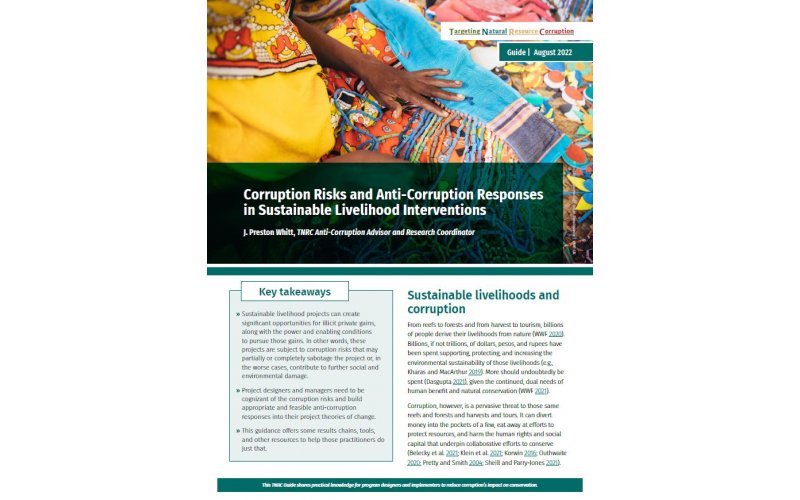Sustainable livelihood projects can create significant opportunities for illicit private gains, along with the power and enabling conditions to pursue those gains. In other words, these projects are subject to corruption risks that may partially or completely sabotage the project or, in the worse cases, contribute to further social and environmental damage.
Project designers and managers need to be cognizant of the corruption risks and build appropriate and feasible anti-corruption responses into their project theories of change.
This guidance offers some results chains, tools, and other resources to help those practitioners do just that.

